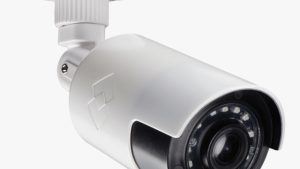Have you ever wondered how some people seem to possess effortlessly smooth and youthful skin? The answer may lie in the remarkable world of dermal fillers. Dermal fillers have quickly become a popular non-surgical cosmetic treatment for achieving rejuvenated and plump skin, helping individuals turn back the hands of time without the need for invasive surgery. With their ability to reduce wrinkles, restore volume, and enhance facial contours, dermal fillers have truly revolutionized the concept of attaining a more youthful appearance.
Derived from a variety of safe and effective substances, dermal fillers are carefully injected beneath the skin’s surface, targeting areas that have lost volume or developed lines and wrinkles. Whether it’s addressing smile lines, marionette lines, hollow cheeks, or enhancing lip volume, these remarkable fillers can be tailored to meet each individual’s specific concerns and desired results. The procedure is quick, often taking less than an hour to complete, and the results are instant, making it an appealing option for those seeking immediate results with minimal downtime.
In this article, we will delve deeper into the world of dermal fillers, uncovering their wonders and shedding light on how they work their magic to achieve youthful-looking skin. Get ready to discover the secrets behind a more radiant complexion and learn why dermal fillers have become a go-to solution for many individuals seeking a more youthful, refreshed appearance. So sit back, relax, and prepare to unlock the key to age-defying beauty with the wonders of dermal fillers.
What are Dermal Fillers?
Dermal fillers, also known as soft tissue fillers, are a popular cosmetic treatment used to restore volume and rejuvenate the skin. These injectable substances provide a quick and non-surgical solution for reducing the appearance of wrinkles, fine lines, and sagging skin.
Made from synthetic or naturally occurring materials, dermal fillers are designed to replenish lost volume and enhance facial contours. They work by filling in the areas that have lost elasticity and fullness due to aging or other factors. This can include areas around the eyes, cheeks, lips, and jawline.
One of the key benefits of dermal fillers is their ability to stimulate the production of collagen, a protein that gives the skin its structure and youthful appearance. By promoting collagen production, dermal fillers can help improve the overall texture and elasticity of the skin, resulting in a more youthful and refreshed look.
It is important to note that while dermal fillers can provide long-lasting results, they are not permanent. The duration of the effects varies depending on the type of filler used and individual factors. Regular maintenance treatments may be required to maintain the desired results.
In the next section, we will explore the different types of dermal fillers available and how they can be used to target specific areas of concern. Stay tuned to discover the wonders these fillers can offer in the pursuit of radiant and youthful skin.
Benefits of Dermal Fillers
Youthful Appearance: Dermal fillers offer a remarkable solution to help you achieve a more youthful appearance. With their ability to smooth out fine lines and wrinkles, these fillers can turn back the clock, leaving you with a refreshed and revitalized look.
Enhanced Volume: One of the key benefits of dermal fillers is their ability to restore lost volume to the face. As we age, our skin naturally loses elasticity and fat, resulting in sagging and hollowed areas. Dermal fillers are excellent for adding volume to sunken cheeks, thin lips, and deep facial lines, giving you a fuller and more vibrant complexion.
Buy dermal fillers online EuropeNatural Results: Unlike invasive cosmetic procedures, dermal fillers provide natural-looking results. They work by replenishing the skin’s natural collagen, helping to restore its youthful structure and texture. The outcome is a subtle enhancement that enhances your features without looking overdone or artificial.
Remember, dermal fillers should always be administered by a qualified professional to ensure safety and optimal results. Consult with a licensed aesthetician or dermatologist to discuss your goals and determine the best dermal filler option for you.
Choosing the Right Dermal Filler
When it comes to choosing the right dermal filler for your skin, there are a few factors to consider. Firstly, it is important to understand that different dermal fillers are designed to target specific areas of the face. Some are best suited for plumping up the lips, while others work wonders in reducing the appearance of deep lines and wrinkles. Therefore, it is essential to consult with a qualified professional who can assess your individual needs and recommend the most suitable filler for the desired outcome.
Another important consideration in selecting a dermal filler is the duration of its effects. Some fillers offer temporary results that can last several months, while others provide more long-lasting effects. Short-term fillers may be a good option if you are unsure about committing to a particular look, as they allow for flexibility and experimentation. On the other hand, if you are seeking a more permanent solution, there are dermal fillers available that can provide results for up to a year or more.
Lastly, it is crucial to take into account any allergies or sensitivities you may have. While rare, allergic reactions to dermal fillers can occur, so it is essential to inform your healthcare provider about any known allergies or medical conditions. A skilled professional will be able to guide you towards a filler that is compatible with your skin type and reduce the risk of adverse reactions.
In conclusion, choosing the right dermal filler involves considering the specific areas you wish to target, the duration of the desired effects, and any allergies or sensitivities you may have. By consulting with a qualified professional and taking these factors into account, you can ensure that you achieve the best possible results with your dermal filler treatment.





